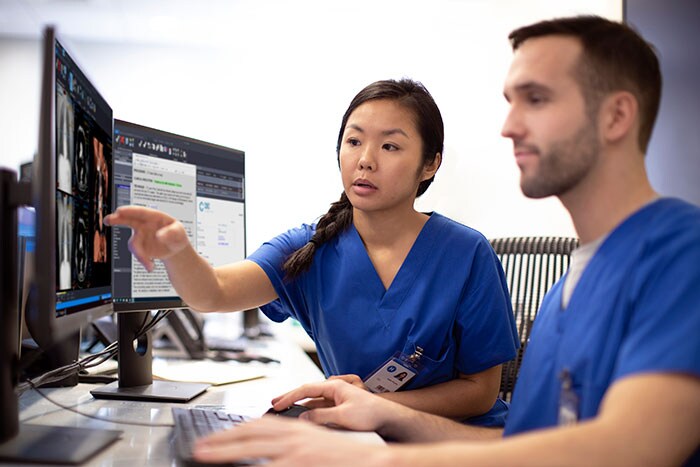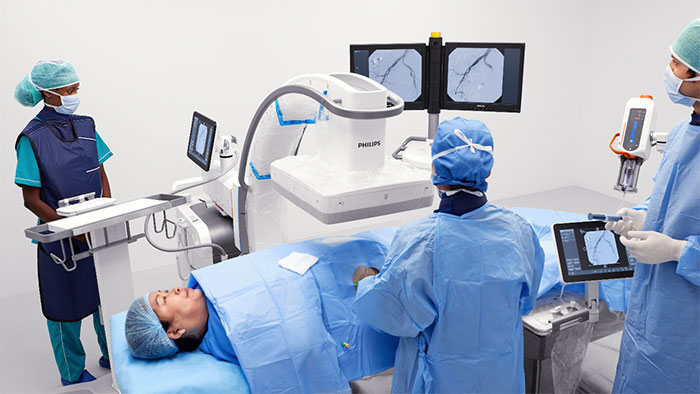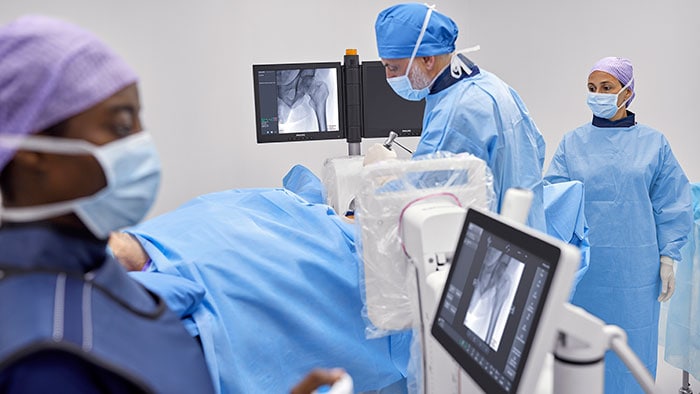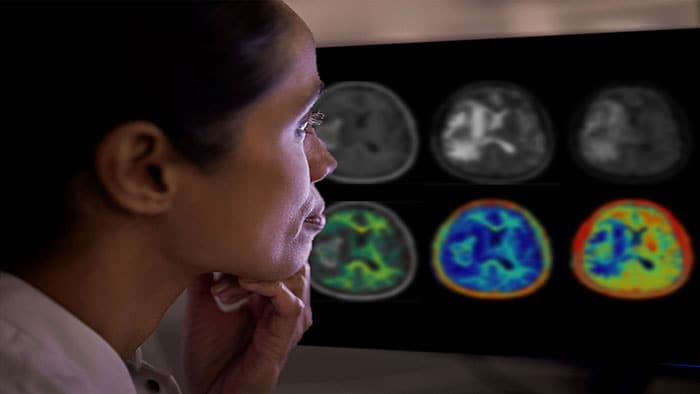Apr 17, 2023
Philips at HIMSS 2023: Enterprise Informatics central to solving productivity, staff and patient experience challenges
Amsterdam, the Netherlands and Chicago, USA – Royal Philips (NYSE: PHG, AEX: PHIA), a global leader in health technology, today highlighted the central role that Enterprise Informatics plays in its efforts to enable care providers to concentrate their limited resources on achieving better outcomes for patients. By providing software and hardware solutions that work together seamlessly across care settings, workflows, and across vendors, the company’s solutions showcased at HIMSS23 utilize clinical and operational data to enhance productivity, streamline processes and improve results.
Focusing on the clinicians, doctors, nurses and others caring for patients, we apply technology to extract the signal from the noise, to provide the right data at the right time, all with the aim of reducing the pressure these carers are under and helping them to deliver better patient outcomes.
Shez Partovi
Chief Innovation & Strategy Officer and Business Leader Enterprise Informatics at Philips
“Digitization has unleashed a flood of data that presents a huge opportunity but is also overwhelming clinicians, nurses, and administrators,” said Shez Partovi, Chief Innovation & Strategy Officer and Business Leader Enterprise Informatics at Philips. “Focusing on the clinicians, doctors, nurses and others caring for patients, we apply technology to extract the signal from the noise, to provide the right data at the right time, all with the aim of reducing the pressure these carers are under and helping them to deliver better patient outcomes.”
Unlocking enterprise-wide, actionable insights at scale to improve outcomes
From integrated imaging, digital pathology and genomics through monitoring and therapies, Philips’ informatics solutions liberate and connect data for clinical confidence, predictive insights and more efficient operations. Philips’ latest AI-enabled, interoperable and cloud-based enterprise informatics solutions featured at HIMSS include the following key areas of focus:
Integrated diagnostics: By delivering more efficient connected workflows, such as embedded reporting and AI powered applications to eliminate manual processes, Philips’ diagnostic informatics help deliver greater diagnostic precision, reduced staff workload and variability, increased productivity, and an enhanced clinician experience. At HIMSS23 Philips is highlighting its integrated diagnostics partnership with Saint-Joseph Hospital & Marie-Lannelongue Hospital to improve personalized cancer care.
Hospital and acute care: Hospital virtual care, acute care management and Philips Capsule Surveillance solutions provide flexible enterprise-wide capabilities, supporting clinician mobility, data sharing, predictive analytics, alarm management, plus system integration across hospital and critical care patient journeys. For example, Northwell Health recently adopted Philips’ patient monitoring platform to drive integration and innovation for a better patient and staff experience and improved outcomes.
Out-of-hospital and ambulatory care: Philips Virtual Care Management can help reduce pressure on hospital staff by decreasing emergency department visits by an average of 38%, as well as potential savings in the cost of care through better management of chronic disease [1][2]. The combination of hospital and cardiac ambulatory monitoring help to create a powerful ecosystem of home-to-hospital and hospital-to-home care that allows clinicians to proactively diagnose and manage their patients.
Care management and operations: Imaging orchestration, enterprise performance analytics, and hospital virtual care solutions unite data, surveillance, and people to support healthcare organizations in making clinical, financial, and operational improvements. For example, Philips Imaging Orchestrator – ROCC a vendor-neutral, multi-modality, multi-site telepresence solution provides advanced tele-acquisition capabilities and seamlessly connects imaging experts at a command center with technologists at scanners across locations.
Today at HIMSS, Philips also announced that it is joining forces with AWS to bring Philips HealthSuite Imaging PACS to the cloud and advance AI-enabled tools in support of clinicians. Throughout the week, Philips will host forum sessions in its booth, featuring presentations from Philips executives, customers and industry leaders, for the full program please visit here. The latest Future Health Index, a global report commissioned by Philips and based on proprietary research exploring how healthcare leaders are harnessing the power of data and digital technology news, will also be introduced during the event.
Join Philips in person at HIMSS23 at booth #901 or visit Philips’ virtual informatics experience and follow @PhilipsLiveFrom for #HIMSS23 updates throughout the event.
[1] Magee MF, Baker KM, Fernandez SJ, et al. Redesigning ambulatory care management for uncontrolled type 2 diabetes: a prospective cohort study of the impact of a Boot Camp model on outcomes. BMJ Open Diabetes Res Care. 2019;7(1):e000731. Published 2019 Nov 13. doi:10.1136/bmjdrc-2019-000731.
[2] A Diabetes Care Management Program for uncontrolled type 2 diabetes in a predominantly African American population amortized over the study cohort due to reduced risk of all factors hospitalization after 90 days compared to usual care.
About Royal Philips
Royal Philips (NYSE: PHG, AEX: PHIA) is a leading health technology company focused on improving people's health and well-being through meaningful innovation. Philips’ patient- and people-centric innovation leverages advanced technology and deep clinical and consumer insights to deliver personal health solutions for consumers and professional health solutions for healthcare providers and their patients in the hospital and the home. Headquartered in the Netherlands, the company is a leader in diagnostic imaging, ultrasound, image-guided therapy, monitoring and enterprise informatics, as well as in personal health. Philips generated 2022 sales of EUR 17.8 billion and employs approximately 77,000 employees with sales and services in more than 100 countries. News about Philips can be found at www.philips.com/newscenter.











